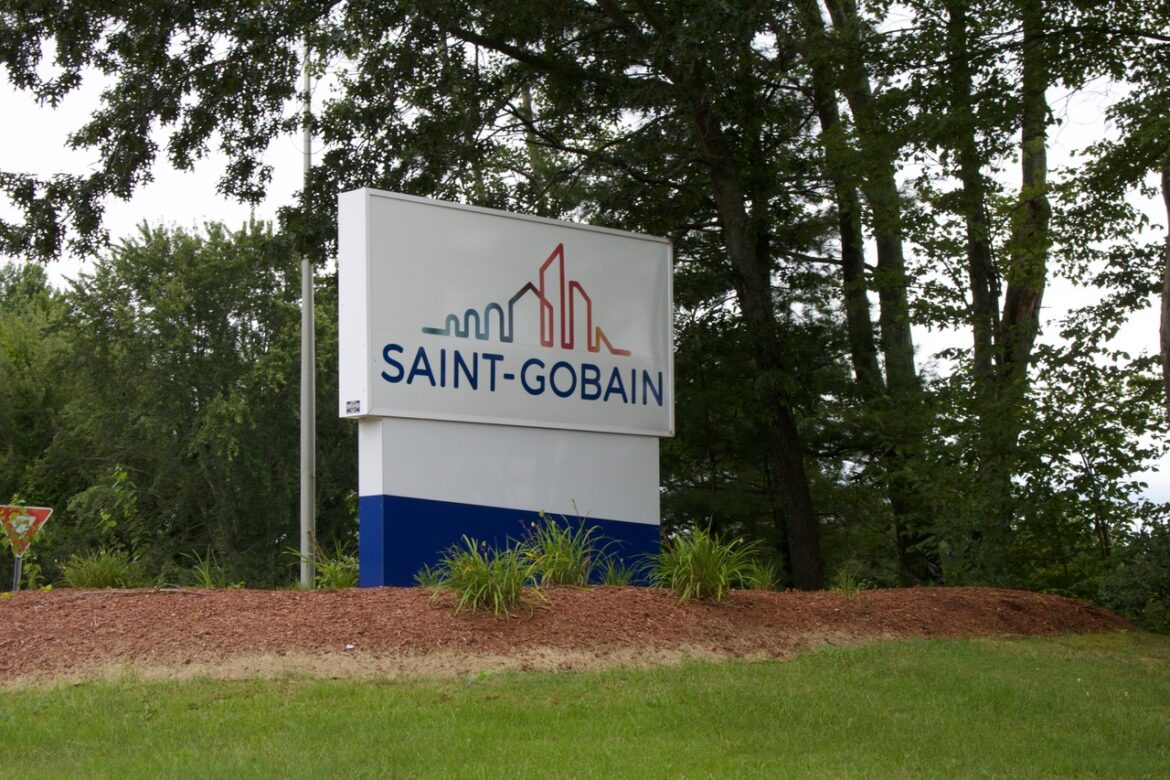The New Hampshire Department of Environmental Services confirmed that Saint-Gobain Performance Plastics, whose manufacturing facility in Merrimack became known for contaminating drinking water in Merrimack and neighboring towns with PFAS chemicals, has not fulfilled the department’s recent requests regarding the polluted area.
Mike Wimsatt, Director of the Waste Management Division at the New Hampshire Department of Environmental Services, did say that Saint-Gobain has complied with the 2018 consent decree—but the company has declined to perform additional work that the state believes is required under the agreement.
“NHDES has repeatedly requested additional sampling work within the boundary that it believes is required under the CD,” Wimsatt wrote in an email. “Saint-Gobain has declined to perform this work.”
Rep. Rosemarie Rung, D-Merrimack, is known as one of New Hampshire’s “Water Warriors” who frequently advocates for clean water, Saint-Gobain’s accountability in contaminating her town with PFAS, and greater medical care to address the numerous health impacts of forever chemicals.
“We can’t allow an example to be set where a violator is continued to be allowed to violate an order,” Rung said over the phone. “It sets a bad example for violators when we allow someone to game the system.”
Rung said that she doesn’t think Saint-Gobain would do anything that they’re not forced to do—or namely, without the incentive of money.
Rather than wait for Saint-Gobain to comply, NHDES has chosen to move forward with doing the sampling themselves.
“NHDES intends to use its own resources to complete the work, and plans to recover its costs for doing so from Saint-Gobain,” Wimsatt said.
Jim Martin of the NHDES confirmed that the department’s frustration in Saint-Gobain’s unwillingness to continue sampling and testing potentially contaminated water to as of late.
“Saint-Gobain has not fully complied with the sampling requirements that the Department has asked them to complete,” Martin said over the phone. “The Department is not satisfied with that aspect at this point.”
Rung believes that DES needs to be more strict in how it deals with Saint-Gobain, especially with an issue that places people’s health on the line.
“DES is supposed to be defending Granite Staters and not allowing this company to get away with delays, particularly when people’s health and their quality of life are at stake,” Rung said. She commended them for not waiting for Saint-Gobain to conduct crucial additional sampling, though.
The 2018 consent decree outlined a 65-square-mile area around the Saint-Gobain facility for which the company would be liable, in collaboration with DES, to create a Remedial Action Plan to clean up the site, expand municipal water systems, and to provide safe drinking water to affected residents.
A key part of the original agreement, however, could be the inflection point in Saint-Gobain’s non-compliance. “The State reserves its right to request or order further measures in the manner set forth herein, and Respondent reserves all rights it may have to object to any such requests or orders in the manner set forth herein,” the consent decree reads.
While the state had every right to request additional water sampling from Saint-Gobain, it appears the company also had every right to deny those requests based on the clause in the 2018 consent decree.
Saint-Gobain has denied not complying with what DES has asked of them. A letter from NHDES says otherwise. In a January message to Saint-Gobain, the State Hazardous Remediation Bureau referenced a letter from June 2023 asking Saint-Gobain for additional sampling “so that the full extent of water supply well impacts associated with the facility can be assessed.”
“At this time, SGPP [Saint-Gobain] has not proposed to complete the necessary sampling within the Outer Boundary,” wrote Andrew Fuller of the Hazardous Waste Remediation Bureau back in January of this year.
A representative of Saint-Gobain responded with the following regarding their compliance with DES’ requests as stipulated in the consent decree:
“The consent decree boundaries were finalized in 2018 after more than two years of negotiations between the company and the state. The boundaries were negotiated by both parties, guided by technical experts and data. Since the consent decree was finalized, we have conducted a robust, science-based sampling program within the consent decree area in accordance with applicable regulations. We have adhered to the sampling requirements within the consent decree, and we continue to work with the New Hampshire Department of Environmental Services as it conducts additional sampling on a number of other matters within the boundary.”
In response to several questions about how NHDES intends to penalize Saint-Gobain beyond asking for repayment on additional testing, Mike Wimsatt of the Waste Management Division said the following in an email:
“NHDES possesses enforcement authorities, but we do not publicly discuss enforcement plans or timing.”
Rung is concerned that people are getting “PFAS fatigue,” tired of hearing and worrying about the contamination of their water, the threat these chemicals pose to their health, and anything to do with Saint-Gobain. But Rung urges to keep the momentum going, as the next steps are to address the long-term implications of PFAS contamination and continue pursuing accountability.
“We have people who have been on bottled water for over 5 years. That is unacceptable,” Rung said. “Any delays in this process delays getting those people to a normal quality of life where they can turn on the tap and be assured that the water they have is safe to drink, safe to cook with, safe to wash.”
Ani Freedman is a contract reporter with InDepthNH.org. She is a recent graduate from Columbia Journalism School with a passion for environmental, health, and accountability reporting. In her free time, she’s an avid runner and run coach. She can be reached at anifreedmanpress@gmail.com.






